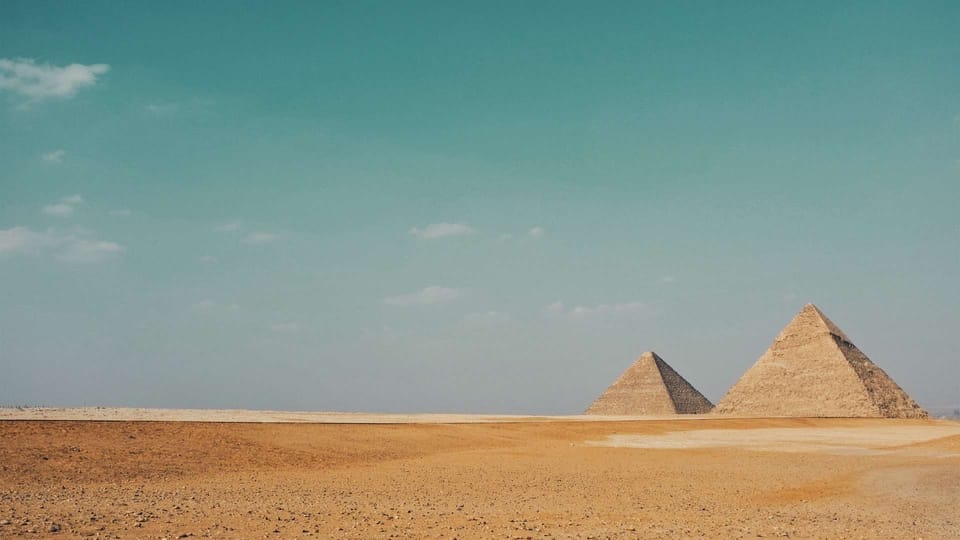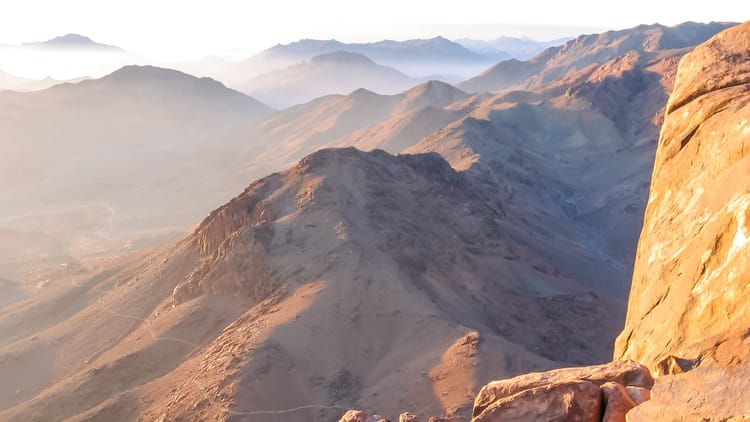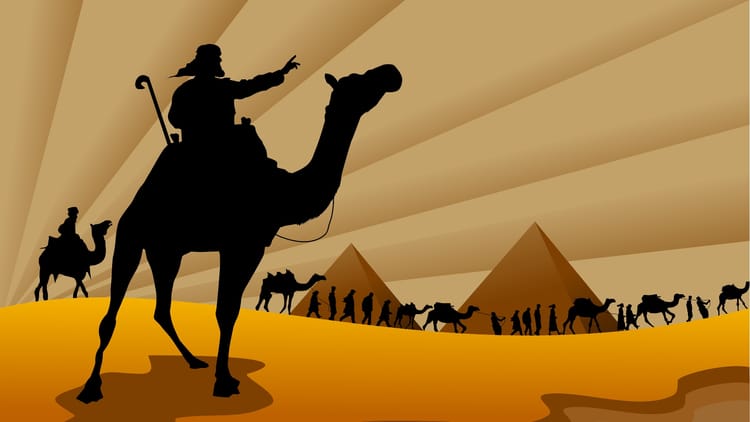When God Shows His Power (Exodus 7:8-10:29)

Big Idea: God’s fierce demonstrations of power are meant to help us to learn how to worship.
A funny thing happens whenever there’s a hurricane.
Most of us would run away from a hurricane. Who wants to be in the middle of a terrifying storm when it comes? Hurricanes can be hundreds of kilometers in diameter. Winds in the hurricane can blow at over 200 kilometers an hour. Over the past couple of hundred years, hurricanes have killed 1.9 million people.
If you want a sense of how overpowering nature can be, then look no further than a hurricane. A hurricane is terrifying in its power. It will leave you humbled. It will teach you your place in the world. You will no longer say, “I’m not afraid of wind.” You will have an appropriate respect for weather.
The same could be said of God.
Most of us are pretty comfortable with the idea of God, and for good reason. If you are a follower of Jesus Christ, then God is your Father. Hebrews 4:16 tells us, “Let us then with confidence draw near to the throne of grace, that we may receive mercy and find grace to help in time of need.” We don’t have to approach God’s throne wondering if it’s safe or not. We can approach God with confidence.
But let us never think that God is safe.
In the passage before us, we’re going to learn a couple of things. Let’s look at them. Here’s the first.
God is capable of fierce demonstrations of power.
Just in case you think that God is completely safe, he isn’t. Remember what C.S. Lewis wrote about Aslan in The Silver Chair? Jill wants a drink, but Aslan is in the way.
“Will you promise not to to do anything to me, if I do come?” said Jill.
“I make no promise,” said the Lion.
Jill was so thirsty now that, without noticing it, she had come a step nearer. “Do you eat girls?” she said.
“I have swallowed up girls and boys, women and men, kings and emperors, cities and realms,” said the Lion. It didn’t say this as if it were boasting, nor as if it were sorry, nor as if it were angry. It just said it.
Aslan is good, but he is not safe. He has swallowed up girls and boys, women and men, kings and emperors, cities and realms. God is to be feared.
That’s what we see in this passage. We have before us nine plagues set in groups of three. The plagues are as scary as a hurricane. They are de-creation stories. It's about the world being in chaos and the most powerful person not being able to fix it.
Egypt at the time had been an empire for centuries. The pyramids had already been around for hundreds of years at the time. Pharaoh ruled over a vast empire. And then God shows up, and here’s what we find:
- three cycles
- each cycle beginning in a morning with an announcement of what’s to follow, and a command to let the people go
- the last in each set coming with no warning
- each cycle ending with a report on a condition of Pharaoh’s heart
- each plague striking at the core of Egyptian wealth and religion
Cycle One
- Plague 1: God disrupts the center of the Egyptian life and the economy by turning the Nile into blood
- Plague 2: Frogs abandon the Nile River and end up everywhere and on anyone. They even hop up on the royal person.
- Plague 3: Some insect, possibly gnats, lice, or mosquitos, everywhere.
And still at the end of the first cycle, Pharaoh’s heart is hardened.
Cycle Two
A brand-new cycle:
- Plague 4: Dense swarms of flies, not affecting the Israelites, but pouring “into Pharaoh’s palace and into the houses of his officials; throughout Egypt the land was ruined by the flies” (Exodus 8:24)
- Plague 5: The widespread death of livestock. Notice how the intensity has increased. Up until now, Egyptians have faced inconvenience. Now they’re starting to face death.
- Plague 6: Moses and Aaron take some soot from the kilns that were used to oppress them. The throw the soot in the air, and it results in ugly boils breaking out on their skin.
And still at the end of the second cycle, Pharaoh’s heart is hardened.
Cycle Three
This is the final cycle.
- Plague 7: Hail. This is the longest description of any of the plagues. Thunder and hail and lightning, striking down people, animals, and plants. For the first time, people die.
- Plague 8: Locusts that eat everything, making starvation a real possibility for the entire nation.
- Plague 9: Darkness over the land of Egypt for three days, a direct insult against their chief deity, the sun god, a darkness so severe you could feel it.
And still at the end of the third cycle, Pharaoh’s heart is hardened.
Imagine the chaos. The most powerful man in the world could only watch as his country was devastated. The God who has swallowed up girls and boys, women and men, kings and emperors, cities and realms put his power on display, and it was a fearsome thing to watch.
A few times now I’ve read the Bible through, cover to cover, really quickly. I usually take my time reading the Bible, maybe a few chapters at a time. These times I read the Bible in just a short time. Here’s what really struck me as I read at this quicker pace: Don’t mess with God. That is one of the major themes of the Bible. Don’t mess with God. God is to be feared. Don’t let your familiarity with God lead to a lack of fear for him. God is to be feared.
Picture the sun. Every year in the spring we get a hot day, and I’m so glad that I go out without protection and get burned, and that is when I’m 150 million kilometers away from the sun. Imagine being close to the sun. We would not survive. Respect the sun, and respect God as well. He has immense power, and no human compares.
As one book puts it, he is…
…a God who is transcendent, majestic, infinite in righteousness, who loves justice as much as He does mercy; who hates wickedness as much as He loves goodness; who blazes with a fiery, passionate love for Himself above all things. He is Creator, Sustainer, Beginning and End. He is robed in a splendor and eternal purity that is blinding. He rules, He reigns, He rages and roars…
Don’t mess with God. God is not safe. God is capable of fierce demonstrations of power. He is to be feared. His power is immensely beyond what we can imagine.
That’s the first thing we learn in this passage. Here’s the second.
God displays his power for a purpose.
All along, Moses makes it clear why they want to be released: to serve God in the wilderness (Exodus 7:16). But in one plague, God spends a bit of time unpacking his purpose behind all the plagues. Read with me what God says in Exodus 9:13-17:
Thus says the LORD, the God of the Hebrews, “Let my people go, that they may serve me. For this time I will send all my plagues on you yourself, and on your servants and your people, so that you may know that there is none like me in all the earth. For by now I could have put out my hand and struck you and your people with pestilence, and you would have been cut off from the earth. But for this purpose I have raised you up, to show you my power, so that my name may be proclaimed in all the earth. You are still exalting yourself against my people and will not let them go.
What was God’s agenda in all of this?
One: that we get to see that he’s uniquely powerful. “…so that you may know that there is none like me in all the earth” (9:14). There is nobody else like God. Nobody. The most powerful human being alive is completely powerless before him. All other gods are nothing before him. God wants us to know that he alone is God. There is nobody like him. Civilizations, governments, rulers, angels, and demons — and we ordinary humans — are all powerless before him.
Have you come to the point where you recognize the uniqueness of God’s power? There are a lot of things clamoring for our attention these days. A lot of things claim to be the thing that we need to be all about. One of humanity’s greatest problems is that we’ve lost sight of who God really is.
Only God is God. See him in all his power. All creation is ready to do his bidding. Bow before him. There is nobody like him. He is so much more powerful than anything we can imagine. God wants us to get a glimpse of his power.
But that’s not all. Here’s the second part of God’s agenda:
Two: that we would worship him. “so that my name may be proclaimed in all the earth” (9:16).
Because of the plagues, the Egyptians learned that God is who he claimed to be. Pharaoh, even in rebellion, ended up serving God’s purposes.
But the surrounding nations also got to learn about God. Years later, when the Gibeonites met Joshua, they said, “From a very distant country your servants have come, because of the name of the LORD your God. For we have heard a report of him, and all that he did in Egypt” (Joshua 9:9). Even later, the Philistines said, “Woe to us! Who can deliver us from the power of these mighty gods? These are the gods who struck the Egyptians with every sort of plague in the wilderness” (1 Samuel 4:8). The plagues made God famous.
But they also taught Israel to worship God. For instance, their songbook, the Psalms, includes this:
He destroyed their vines with hail
and their sycamores with frost.
He gave over their cattle to the hail
and their flocks to thunderbolts.
He let loose on them his burning anger,
wrath, indignation, and distress,
a company of destroying angels.
He made a path for his anger;
he did not spare them from death,
but gave their lives over to the plague.
(Psalm 78:47–50)
Why are you here today? God wants you to understand his power. But he wants that power to lead you to worship him.
Friends, God’s desire for all of us is to know him, to know him in all of his power, and to recognize our powerlessness before him and then love and be loved by him.
I included this quote earlier, but left off the last few words. I want to include them this time. He is…
…a God who is transcendent, majestic, infinite in righteousness, who loves justice as much as He does mercy; who hates wickedness as much as He loves goodness; who blazes with a fiery, passionate love for Himself above all things. He is Creator, Sustainer, Beginning and End. He is robed in a splendor and eternal purity that is blinding. He rules, He reigns, He rages and roars, then bends down to whisper love songs to His creatures.
See his power, take in the love that he’s shown us through Jesus.
Lord, may we see you in all of your power today. May we worship you. And may we stand in awe that you have chosen to love us. In Jesus’ name, Amen.





